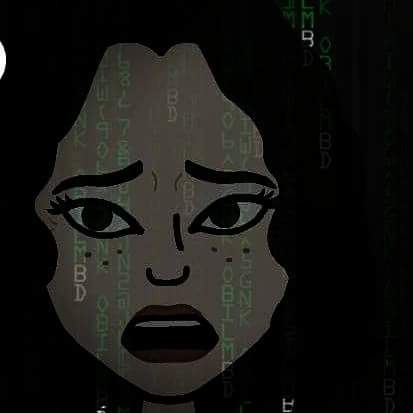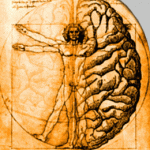As a computer scientist, I have to say my job has changed very little in the last last twenty-odd years. The tech has, admittedly, but I am still doing what I did back then, sitting in front of a computer, thinking about how computers can make peoples’ lives easier, what makes people tick, and how can we put the two together to make something cool? Sometimes I even program something up to demonstrate what I am talking about.
It seems to me though that everyone else’s jobs (non-computer scientists) have changed and not necessarily for the better. People do their jobs and then they do a load of extras like social media, blogging, content creation, logging stuff in systems- the list is endless – on top of their workload.
It makes me wonder: Is this progress?
Humans and stories
As a teenager, on hearing about great literature and the classics, I figured that it must be something hifalutin’. In school we did a lot of those kitchen sink, gritty dramas (A Kind of Loving, Billy Liar, Kes, etc.,). So, when I found the section in the library: Classics, Literature, or whatever, it was a pleasant surprise to see that they were just stories about people, and sometimes gods, often behaving badly, and I was hooked. Little did I know that reading would be the best training I could receive to become a computer scientist.
Human and computer united together
In my first job as systems analyst and IT support, I found that I enjoyed listening to people’s stories in and amongst their descriptions about their interactions with computers. My job was to talk to people. What could be better? I then had to capture all the information about how computers were complex and getting in the way and try to make them more useful. Sometimes I had to whip out my screwdriver and fix it there and then. Yay!! Badass tech support.
The thing that struck me the most was that people anthropomorphised their computers, talking about them needing time to warm up, being temperamental, and being affected by circumstances, as if they were in some way human and not just a bunch of electronic circuits. And, that the computer was always the way of progress, even if they hated it and didn’t think so.
I think this is partly because it was one person with one computer working solely, so the computer was like a companion, the office worker you love or hate, who helps or hinders. There was little in the way of email or anything else unless you were on the mainframe and then it was used sparingly, especially in a huge companies. Memos were still circulated around. The computer was there to do a task – crunch numbers, produce reports, run the Caustic Soda Plant (I did not even touch the door handles when I went in there) – the results of which got transferred from one computer to another by me, and sometimes by that advanced user who knew how to handle a floppy disk.
Most often information was transferred orally by presentation in a meeting or on paper with that most important of tools, the executive summary whilst the rest of it was a very dry long winded explanation, hardly a story at all.
Human and computer and human and computer united
Then the Internet arrived and humans (well mainly academics) began sharing information more easily, without needing to print things out and post them. This was definitely progress. I began researching how people with different backgrounds like architects and engineers could work together with collaborative tools even though they use different terminology and different software. How could we make their lives easier when working together?
I spent a lot of time talking to architects and standing on bridges with engineers in order to see what they did. Other times I talked to draftsmen to see if a bit of artificial intelligence could model what they did. It could up to a point, but modelling all that information in a computer is limiting in comparison to what a human can know instinctively, which is when I realised that people need help automating the boring bits, not the instinctive bits.
I was fascinated by physiological computing, that is, interacting using our bodies rather than typing – so using our voices or our fingerprints. However, when it was me, my Northern accent, and my French colleagues, all speaking our fabulous variations of the English language into some interesting software written by some Bulgarians I believe, on a slow running computer, well, the results were interesting, to say the least.
Everyone online
The UK government’s push to get everything electronic seemed like a great idea, so everyone could access all the information they needed. It impacted Post Offices, but seemed to free up the time spent waiting in a queue and to provide more opportunities to do all those things like pay a TV licence, get a road tax disc, and passport, etc. This felt like progress.
I spent a lot time working on websites for the government with lovely scripts to guide people through forms like self-assessment so that life was easier. We all know how daunting a government form can be, so what could be better than being told by a website which bit to fill in? Mmm progress.
Lots of businesses came online and everyone thought that Amazon was great way back when. I know I did living in Switzerland and being able to order any book I wanted was such a relief as opposed to waiting or reading it in French. (Harry Potter in French although very good is just not the same.) Progress.
Then businesses joined in and wanted to be seen, causing the creation of banners, ads, popups, buying links to promote themselves, and lots of research into website design so they were all polished and sexy, even though the point of the Internet is that it is a work in progress constantly changing and will never be finished.
I started spending my time in labs, rather than in-situ, watching people use websites and asking them how they felt. I was still capturing stories but in a different way, in a more clinical, less of a natural habitat, way which of course alters what people say and which I found a bit boring. It didn’t feel like progress. It felt businessy – means to an end like – and not much fun.
Human -computer -human
Then phones became more powerful and social media was born, and people started using computers just to chat, which felt lovely and like progress. I had always been in that privileged position of being able to chat to people the world over, online, whatever the time, with the access I had to technology, now it was just easier and available to everyone – definitely progress. Until of course, companies wanted to be in on that too. So, now we have a constant stream of ads on Facebook and Twitter and people behaving like they are down the market jostling for attention, shouting out their wares 24/7, with people rushing up asking: Need me to shout for you?
And, then there are people just shouting about whatever is bothering them. It’s fantastic and fascinating, but is it progress?
The fear of being left behind
The downside is that people all feel obliged to jump on the bandwagon and be on multiple channels without much to say which is why they have to do extras like creating content as part of their ever expanding jobs. The downside is that your stream can contain the same information repeated a zillion times. The upside is that people can say whatever they like which is why your stream can contain the same information repeated a zillion times.
Me, I am still here wondering about the experience everyone is having when this is all happening on top of doing a job. It feels exhausting and it feels like we are being dictated to by technology instead of the other way around. I am not sure what the answer is. I am not sure if I am even asking the right question. I do know how we got here. But is this where we need to be? Do we need to fix it? Does it needs fixing? And, where we should go next? I think we may need a course correct, because when I ask a lot of people, I find that they agree. If you don’t, answer me this, how do you feel when I ask: Is this progress?







2 comments